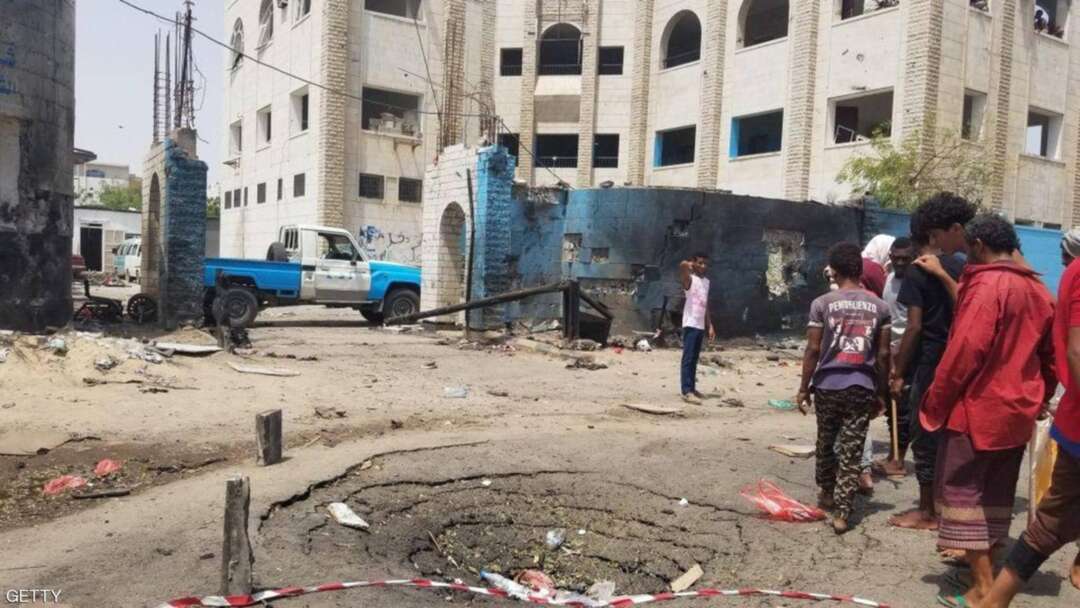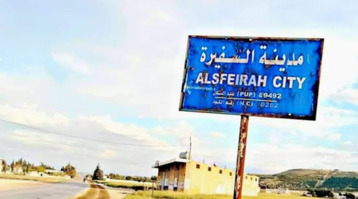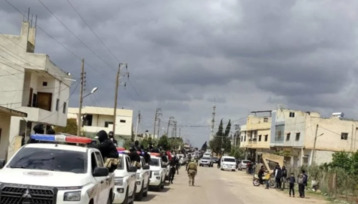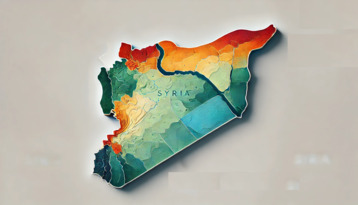-
ISIL and al-Qaeda .. Who drives the terrorist organizations in southern Yemen?

Developments in the past few days have revealed that extremist organizations are exploiting events in southern Yemen to reorganize their ranks, amid questions about who drives them. As reported by locals, they appear and disappear according to political parties’ interests such as Islah.
It is noteworthy that al-Khader Judeib, one of the most prominent leaders of al-Qaeda in Yemen, who is responsible for dozens of terrorist attacks, has become the right arm and Commander of the Guard of Yemen's interior minister, Ahmed al-Maisari.
Soon he then became a leader of the pro-legitimacy reform forces that tried to occupy Aden in the past few days before having been shattered on its walls.
Even though he is wanted on international and Yemeni terrorism lists, Judeib has held positions in Yemeni legitimacy. This in return has raised doubts about President Abed Rabbo Mansour Hadi's commitment to fighting terrorism.
This highlights the open relations between the government and the terrorist organizations in Yemen, which until recently controlled the major cities and governorates of the south such as Aden, Hadramout, Abyan, and Shabwa committing the most heinous crimes against thousands of Yemenis.
However, it has gone now and has changed and disappeared within a short period. Thanks to the rearrangement and establishment of security forces that are capable of confronting and defeating terrorism. These forces along with the elites and the security belts that have emerged from the southern resistance in the provinces of the south have succeeded in liberating a number of Yemeni provinces from the control of the other side of terrorism: the Houthi militias.
With the support, rehabilitation and training of the Arab Coalition, the security forces, elites and security belts have been able to liberate Aden, Abyan Falhaj and Hadramout coast- the largest province of the country- from the control of al-Qaeda and ISIL.
Those areas began an era of security, stability and prosperity, which naturally did not appeal to the terrorist groups and parties to which they are linked to and run by.
After the security belt forces have expelled the Islah party militia from Aden on Thursday, the city was hit by terrorist attacks onFriday; one of which was claimed by ISIL.
Interests that determine the operations of al-Qaeda
Political researcher Samir al-Yousifi told Sky News Arabia that al-Qaeda has been present in Yemen since the 1990s and is based in the mountains of Abyan, al-Bayda and Shabwa in the south of the country.
He added that the group entered the south in the nineties in a deal with the Authority. By then, it has not been recognised as a terrorist figure as it is now.
He said that "Al Qaeda" in Yemen goes and returns according to the interests of certain parties. He pointed out that when they were besieged in the southern provinces, they fled to the mountains, but they have recently returned to launch attacks after being asked to play this role.
"Unfortunately, legitimacy is involved in this dossier," he said. "We expected it to fight the Houthi five years ago."
Islah and al-Qaeda
Ahmed al-Saleh, a political scientist and writer, told Sky News Arabia, "if we track the movement of terrorist organizations, in terms of their activity and inactivity, we will come to the conclusion that these groups have a unified operating room that controls their moves."
He said that terrorist organizations in Yemen show and launch attacks when Islah is in a dead lock or when it loses its positions and influence.
He added that these groups disappeared during the past years in the south because of the sacrifices of the elites, the security belts and the southern resistance.
He stressed that the terrorists did not target al-Houthi although they consider him an enemy, but they began targeting the opponents of those who move them instead.
You May Also Like
Popular Posts
Caricature
BENEFIT AGM approves 10%...
- March 27, 2025
BENEFIT, the Kingdom’s innovator and leading company in Fintech and electronic financial transactions service, held its Annual General Meeting (AGM) at the company’s headquarters in the Seef District.
During the meeting, shareholders approved all items listed on the agenda, including the ratification of the minutes of the previous AGM held on 26 March 2024. The session reviewed and approved the Board’s Annual Report on the company’s activities and financial performance for the fiscal year ended 31 December 2024, and the shareholders expressed their satisfaction with the company’s operational and financial results during the reporting period.
The meeting also reviewed the Independent External Auditor’s Report on the company’s consolidated financial statements for the year ended 31 December 2024. Subsequently, the shareholders approved the audited financial statements for the fiscal year. Based on the Board’s recommendation, the shareholders approved the distribution of a cash dividend equivalent to 10% of the paid-up share capital.
Furthermore, the shareholders endorsed the allocation of a total amount of BD 172,500 as remuneration to the members of the Board for the year ended 31 December 2024, subject to prior clearance by related authorities.
The extension of the current composition of the Board was approved, which includes ten members and one CBB observer, for a further six-month term, expiring in September 2025, pending no objection from the CBB.
The meeting reviewed and approved the Corporate Governance Report for 2024, which affirmed the company’s full compliance with the corporate governance directives issued by the CBB and other applicable regulatory frameworks. The AGM absolved the Board Members of liability for any of their actions during the year ending on 31st December 2024, in accordance with the Commercial Companies Law.
In alignment with regulatory requirements, the session approved the reappointment of Ernst & Young (EY) as the company’s External Auditors for the fiscal year 2025, covering both the parent company and its subsidiaries—Sinnad and Bahrain FinTech Bay. The Board was authorised to determine the external auditors’ professional fees, subject to approval from the CBB, and the meeting concluded with a discussion of any additional issues as per Article (207) of the Commercial Companies Law.
Speaking on the company’s performance, Mr. Mohamed Al Bastaki, Chairman BENEFIT , stated: “In terms of the financial results for 2024, I am pleased to say that the year gone by has also been proved to be a success in delivering tangible results. Growth rate for 2024 was 19 per cent. Revenue for the year was BD 17 M (US$ 45.3 Million) and net profit was 2 Million ($ 5.3 Million).
Mr. Al Bastaki also announced that the Board had formally adopted a new three-year strategic roadmap to commence in 2025. The strategy encompasses a phased international expansion, optimisation of internal operations, enhanced revenue diversification, long-term sustainability initiatives, and the advancement of innovation and digital transformation initiatives across all service lines.
“I extend my sincere appreciation to the CBB for its continued support of BENEFIT and its pivotal role in fostering a stable and progressive regulatory environment for the Kingdom’s banking and financial sector—an environment that has significantly reinforced Bahrain’s standing as a leading financial hub in the region,” said Mr. Al Bastaki. “I would also like to thank our partner banks and valued customers for their trust, and our shareholders for their ongoing encouragement. The achievements of 2024 set a strong precedent, and I am confident they will serve as a foundation for yet another successful and impactful year ahead.”
Chief Executive of BENEFIT; Mr. Abdulwahed AlJanahi commented, “The year 2024 represented another pivotal chapter in BENEFIT ’s evolution. We achieved substantial progress in advancing our digital strategy across multiple sectors, while reinforcing our long-term commitment to the development of Bahrain’s financial services and payments landscape. Throughout the year, we remained firmly aligned with our objective of delivering measurable value to our shareholders, strategic partners, and customers. At the same time, we continued to play an active role in enabling Bahrain’s digital economy by introducing innovative solutions and service enhancements that directly address market needs and future opportunities.”
Mr. AlJanahi affirmed that BENEFIT has successfully developed a robust and well-integrated payment network that connects individuals and businesses across Bahrain, accelerating the adoption of emerging technologies in the banking and financial services sector and reinforcing Bahrain’s position as a growing fintech hub, and added, “Our achievements of the past year reflect a long-term vision to establish a resilient electronic payment infrastructure that supports the Kingdom’s digital economy. Key developments in 2024 included the implementation of central authentication for open banking via BENEFIT Pay”
Mr. AlJanahi concluded by thanking the Board for its strategic direction, the company’s staff for their continued dedication, and the Central Bank of Bahrain, member banks, and shareholders for their valuable partnership and confidence in the company’s long-term vision.
opinion
Report
ads
Newsletter
Subscribe to our mailing list to get the new updates!





















